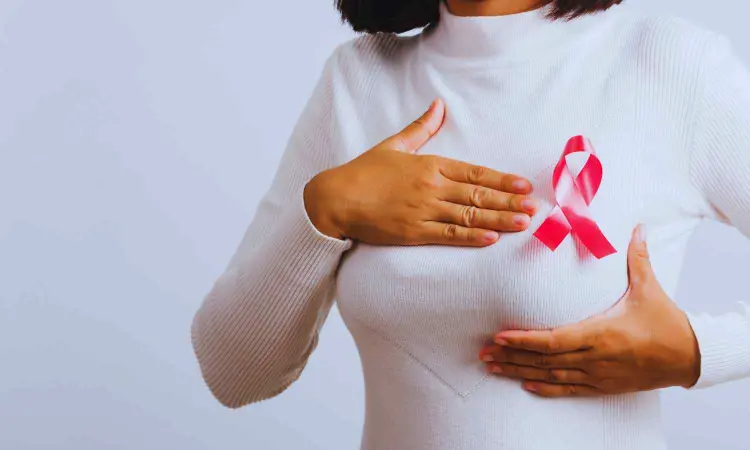- Home
- Medical news & Guidelines
- Anesthesiology
- Cardiology and CTVS
- Critical Care
- Dentistry
- Dermatology
- Diabetes and Endocrinology
- ENT
- Gastroenterology
- Medicine
- Nephrology
- Neurology
- Obstretics-Gynaecology
- Oncology
- Ophthalmology
- Orthopaedics
- Pediatrics-Neonatology
- Psychiatry
- Pulmonology
- Radiology
- Surgery
- Urology
- Laboratory Medicine
- Diet
- Nursing
- Paramedical
- Physiotherapy
- Health news
- Fact Check
- Bone Health Fact Check
- Brain Health Fact Check
- Cancer Related Fact Check
- Child Care Fact Check
- Dental and oral health fact check
- Diabetes and metabolic health fact check
- Diet and Nutrition Fact Check
- Eye and ENT Care Fact Check
- Fitness fact check
- Gut health fact check
- Heart health fact check
- Kidney health fact check
- Medical education fact check
- Men's health fact check
- Respiratory fact check
- Skin and hair care fact check
- Vaccine and Immunization fact check
- Women's health fact check
- AYUSH
- State News
- Andaman and Nicobar Islands
- Andhra Pradesh
- Arunachal Pradesh
- Assam
- Bihar
- Chandigarh
- Chattisgarh
- Dadra and Nagar Haveli
- Daman and Diu
- Delhi
- Goa
- Gujarat
- Haryana
- Himachal Pradesh
- Jammu & Kashmir
- Jharkhand
- Karnataka
- Kerala
- Ladakh
- Lakshadweep
- Madhya Pradesh
- Maharashtra
- Manipur
- Meghalaya
- Mizoram
- Nagaland
- Odisha
- Puducherry
- Punjab
- Rajasthan
- Sikkim
- Tamil Nadu
- Telangana
- Tripura
- Uttar Pradesh
- Uttrakhand
- West Bengal
- Medical Education
- Industry
Mastectomy linked to worsened sexual health, body image after surgery: Study

While mastectomy is often a necessary and life-saving treatment option for many women with breast cancer, the surgery may contribute to worse sexual health, body image, and several other physical and emotional challenges after surgery, according to a new systematic review on the effects of mastectomy in women with breast cancer. Surgeons said the research underscores the importance of screening women before they undergo a mastectomy.
The research will be presented at the American College of Surgeons (ACS) Clinical Congress 2025 in Chicago, October 4-7.
“As surgeons, we often focus on the medical side of care. There is no universal or standardized approach to counseling women on the full range of physical and emotional outcomes after mastectomy,” said Lauren Raymond-King, MD, lead author of the research and a surgical resident at Yale School of Medicine in New Haven, Connecticut. “As a result, many women go into surgery with an incomplete understanding of what to expect in the long-term, not just physically, but emotionally and psychologically, after undergoing a mastectomy.”
Though a common procedure, mastectomy, which involves the removal of one or both breasts, is a major surgery that requires long-term follow-up care. More than a quarter of patients with breast cancer typically undergo a mastectomy, and many patients are staying in the hospital for shorter periods after surgery*— a trend that prompted the investigators to analyze patients’ outcomes after mastectomy through a systematic review.
Out of nearly 3,000 studies they identified, researchers analyzed 20 studies that met their inclusion criteria, examining the effects of mastectomy on quality of life, sexual health, and psychosocial well-being. All the articles focused on the experience of women with Stages 1-3 breast cancer. Studies involving women with Stage 4 breast cancer, as well as women who elected for a prophylactic mastectomy for cancer risk reduction, were excluded from the study due to the distinct needs and different overall medical decision making for these patients.
Key Findings
• Worse psychosocial outcomes for women who undergo mastectomy: Fifteen out of the 20 studies analyzed reported worse psychosocial outcomes, which measure the emotional, social, and psychological effects of a disease, for patients undergoing mastectomy in at least one psychosocial domain.
• No standardized approach to assess post-surgical quality of life: There were 38 different patient-reported outcome measures reported across the 20 studies. The most commonly assessed psychosocial domains were body image (55%), sexual health or sexual function (50%), pain or physical function (45%), and quality of life (40%); far fewer assessed psychosocial health (35%) and satisfaction (25%).
• Need for a standardized approach: Most patient-reported outcome measures (PROMs) were only used once (72%), with studies ranging from using one PROM to up to eight different PROMs to assess psychosocial outcomes after surgery. This wide variation underscores the need to better prepare women with a validated screening tool or other methods before they undergo a mastectomy, the authors said.
“Breast cancer impacts so many patients in our country, and there’s constant research being done to improve survival outcomes,” said Elizabeth Berger, MD, MS, FACS, senior author of the research and an assistant professor of surgery at Yale School of Medicine. “Now that there are so many more survivors of breast cancer, we can’t miss the opportunity to study quality of life outcomes for our patients since they are living so much longer after their diagnosis and treatment.”
Reference:
Mastectomy linked to worsened sexual health, body image after surgery, American College of Surgeons, Meeting: American College of Surgeons Clinical Congress 2025
Dr Kamal Kant Kohli-MBBS, DTCD- a chest specialist with more than 30 years of practice and a flair for writing clinical articles, Dr Kamal Kant Kohli joined Medical Dialogues as a Chief Editor of Medical News. Besides writing articles, as an editor, he proofreads and verifies all the medical content published on Medical Dialogues including those coming from journals, studies,medical conferences,guidelines etc. Email: drkohli@medicaldialogues.in. Contact no. 011-43720751


